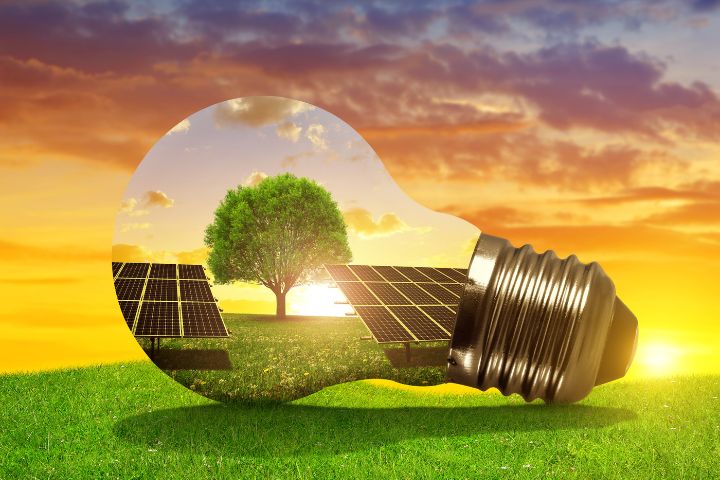

Simple and effective ways to save money on your utility bills
Utility costs such as electricity, gas, and water are necessary expenses that can't be avoided. Charges for these services can vary greatly from state to state. For instance, the Australian Energy Regulator tells us that Tasmania has a lower wholesale cost per megawatt hour at $31 compared to a higher cost of $114 per megawatt hour in South Australia. By contrast, gas prices across all states remain relatively stable.
According to a 2023 Canstar Blue survey, the average cost of water per quarter across Australia is $208. Victoria has the lowest bill at $191, and Queensland has the highest at $240.
While it may be challenging to control how utility companies and local councils charge, there are ways to reduce utility expenses through energy-efficient upgrades, lifestyle changes, and smart practices. Consider incorporating these tips to help lower your utility bills.
1. Switch to energy-efficient appliances and lighting
Consider replacing your old, power-hungry appliances with newer models with an Energy Rating Label. This label displays the number of stars, with more stars indicating greater energy efficiency. You can save money on your electricity bill by choosing appliances with a higher star rating. Most products have a rating of 1 to 6 stars, and with the advancement of technology, energy efficiency is only getting better. Appliances like refrigerators, washing machines, dishwashers, and air conditioning systems can all benefit from this upgrade.
Replacing incandescent bulbs with LED bulbs will use significantly less energy, and as a bonus, the bulbs will last longer (at least 25,000 hours, according to Sustainability Victoria).
2. Check your heating and cooling temperatures
If you don't have one, consider installing a programmable thermostat. This will help optimise your home's heating and cooling times. For cooling in summer, set a standard air conditioner's temperature between 22 to 24 degrees and around 18 to 20 degrees for heating in winter. The harder your air conditioner has to work, the more electricity it will consume. Therefore, setting the temperature lower when cooling and higher when heating will increase your power bill. In fact, according to Canstar Blue, a one-degree change in summer can add about 10% to your air conditioner's electricity usage. It's also recommended to schedule annual maintenance for your heating and cooling systems to keep them running efficiently.
3. Check your water heating temperature
Just like your air conditioner, your water heater can consume a lot of energy, so it's important to check the temperature it's set at. The Plumbing Code of Australia recommends that water heaters be set at 60°C. If your water heater is running at a higher temperature than this, make sure you turn it down. In addition, consider insulating your water heater to reduce heat loss.
4. Fix water leaks
It's important to fix leaky taps and toilets as soon as you notice them, as they can waste a lot of water and money. Installing low-flow showerheads and tapware can also help you save on water usage. Plus, you can conserve energy by washing your clothes with cold water and only using the washing machine and dishwasher when they are full.
5. Unplug electronics and appliances
When not in use, we often forget to unplug our appliances, such as computers, TVs and microwaves. However, they still consume power even when unused, which can result in higher energy costs. According to CNET, leaving electronic devices plugged in can lead to a slow drain on your wallet. Unplugging chargers, electronics, and appliances not only reduces the risk of electrical fires but can also extend the lifespan of your appliances.
6. Compare energy providers
Many of us tend to become lazy and don't bother to check prices when it comes to energy bills. However, it's a good idea to get into the habit of comparing rates every six or twelve months. The energy providers know that most of us don't shop around, so they don't have a lot of incentive to make sure you're on the most appropriate plan. To help you find the best deal for your circumstances, visit Energy Consumer Australia and iSelect to see what's available.
7. Invest in solar
If you live in your own home, installing solar panels can significantly decrease your electricity bills. Some state governments offer solar rebates, so checking if you are eligible to receive them is essential. Your solar system provider should be able to guide you in the right direction or, in some cases, manage the process for you.
Start saving now!
By implementing these energy-efficient choices, you can reduce your utility bills and environmental impact. It's a win-win situation for both your wallet and the planet!
And remember, if you need financial assistance to purchase new energy-efficient appliances or invest in solar, we're here to help. Just look at our cash loans up to $5,000 to find out how quick and easy it is to get some extra funds. Once a loan is approved, the cash is usually in your bank account within a few hours, so you can save money sooner than you might think!